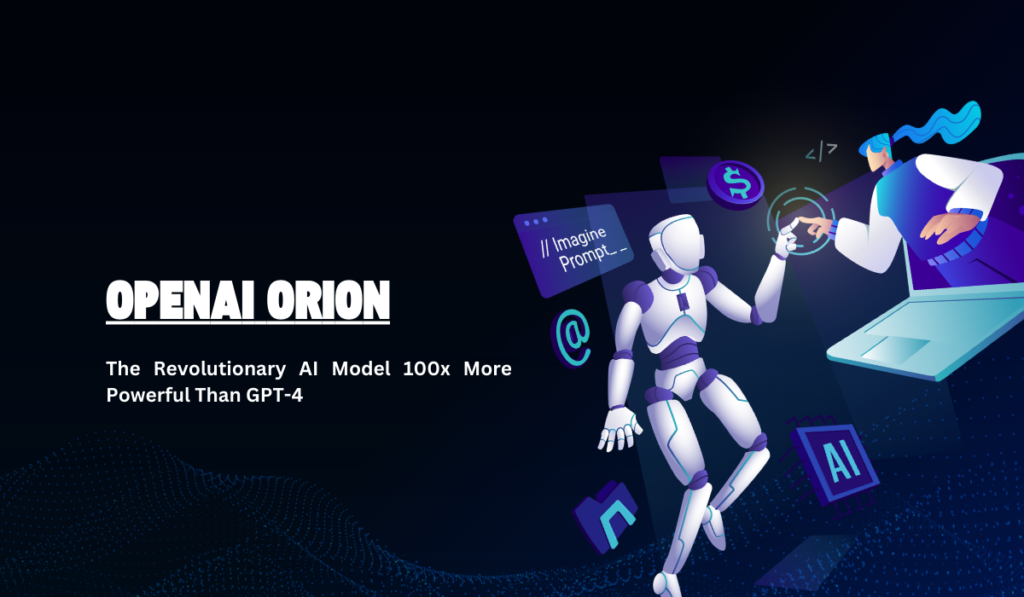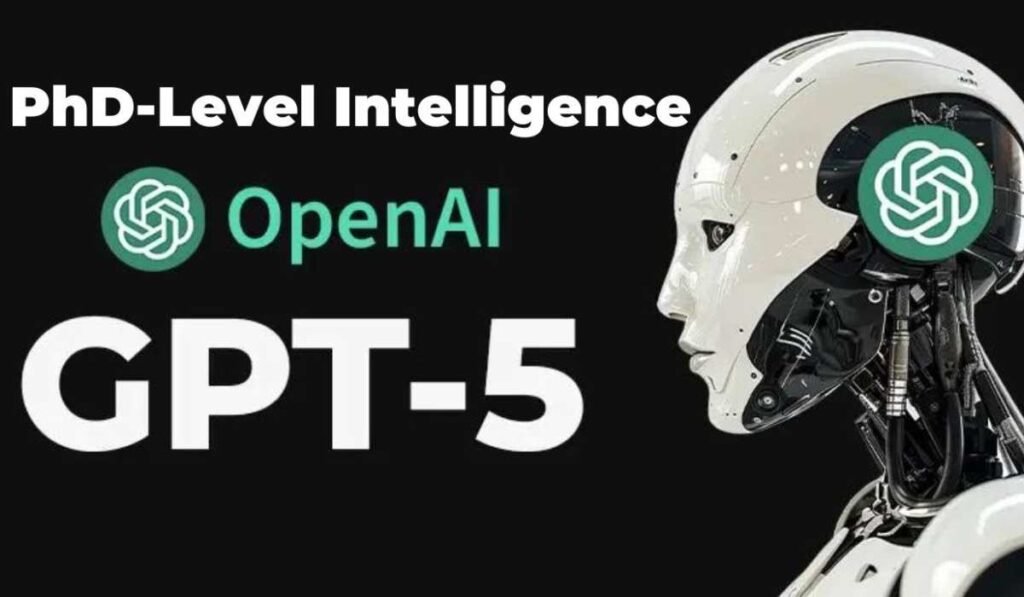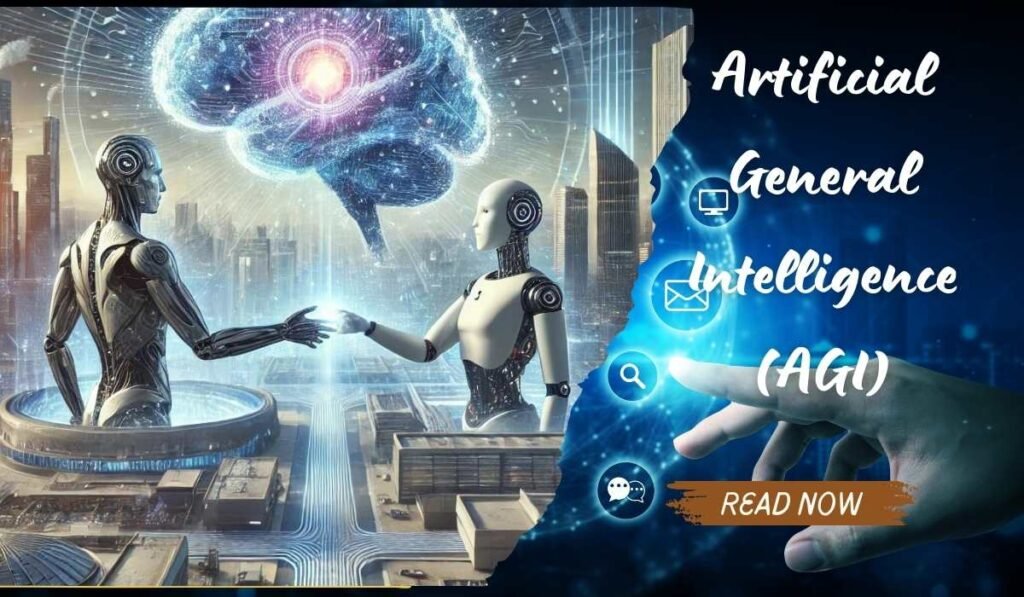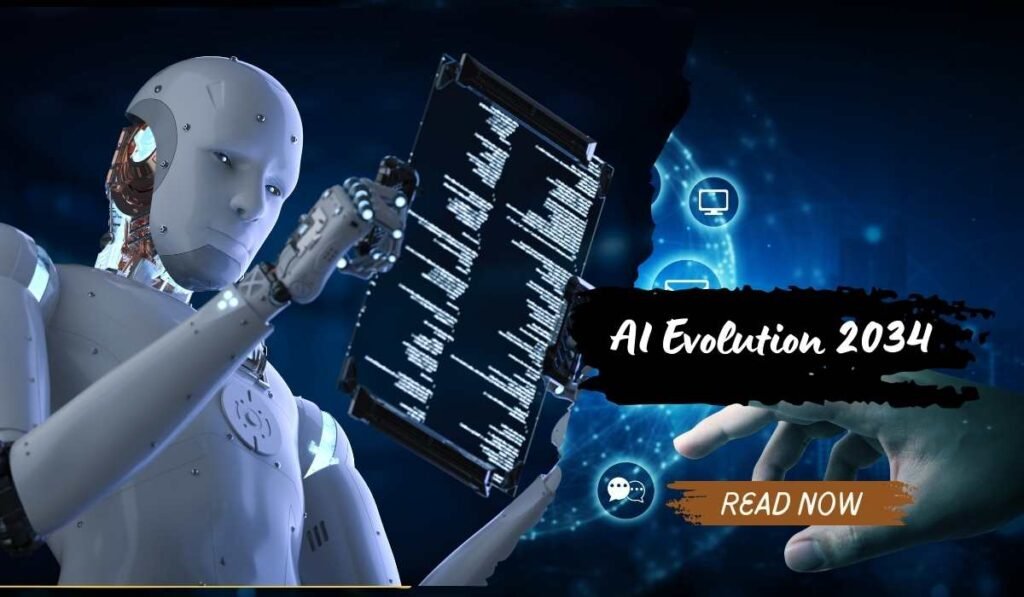In a landmark development that could reshape the future of artificial intelligence, OpenAI Orion is emerging as potentially the most powerful AI model ever created. Set to launch by December, this revolutionary system is reported to be up to 100 times more powerful than its predecessor, GPT-4, marking a significant leap toward Artificial General Intelligence (AGI). Unlike previous releases, OpenAI is taking a more measured approach with Orion, implementing a controlled rollout that signals both its extraordinary capabilities and the company’s growing awareness of AI’s transformative impact.
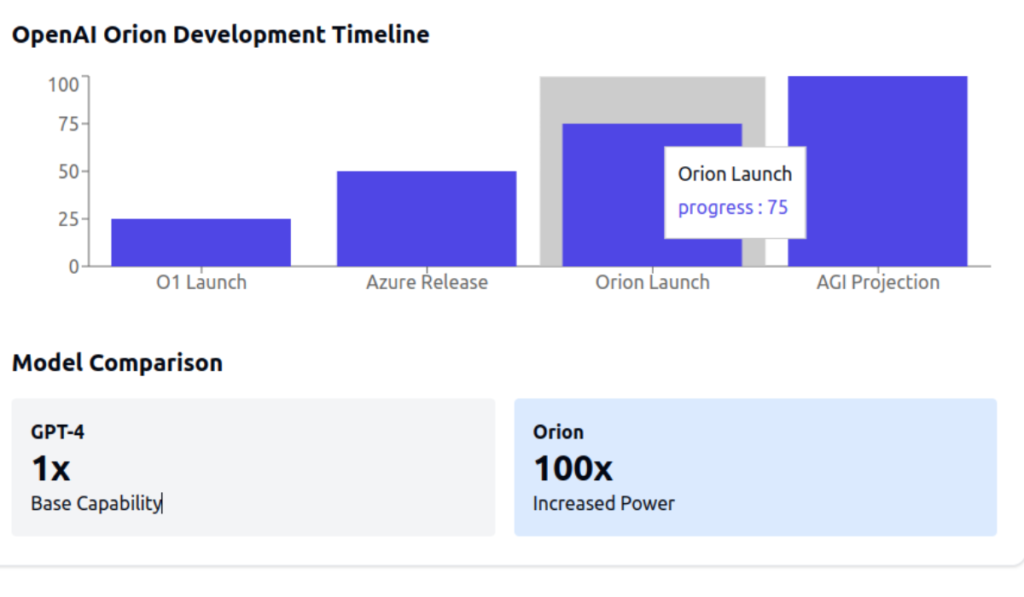
Key Features and Development Approach
- Deployment Strategy: Unlike previous models like GPT-4, Orion will see a gradual, controlled rollout through select partnerships
- Technical Infrastructure: Partnership with Microsoft continues, with Orion planned for deployment on Azure platform
- Development Timeline: Expected release by December, with potential Azure availability as early as November
- Training Innovation: Utilizes synthetic data generation through the “Strawberry” model (internally known as O1) launched in September
Organizational Changes and Investment
OpenAI has undergone significant transformations to support this ambitious project:
- Financial Backing: Secured a massive $6.6 billion in funding
- Corporate Evolution: Moving towards restructuring as a for-profit entity
- Leadership Changes:
- Notable departure of CTO Mira Moradi
- Exit of Miles Brundage, AGI readiness advisor
- Departure of researcher Suchir Balaji
“No one is ready for AGI yet” – Miles Brundage, former OpenAI AGI readiness advisor
Technical and Ethical Considerations
Data Collection Controversies
The development of Orion has raised several concerns regarding data usage:
- Historical Practices:
- Widespread scraping of books, websites, and forums
- Often conducted without explicit permission
- Legal challenges from authors over copyright violations
- Impact on Internet Ecosystem:
- Declining traffic to platforms like Stack Overflow and Reddit
- Potential damage to content creation ecosystems
- Need for regulated data usage practices
AGI Implications
The development of Orion represents significant progress toward AGI with several potential outcomes:
- Societal Impact:
- Potential for optional work scenarios
- Possibility of early retirement becoming more accessible
- Economic growth driven by AI
- Challenges:
- Lack of preparedness across all AI companies
- Need for careful planning and coordination
- Potential for chaotic transition periods
Industry Competition and Approaches
OpenAI vs Anthropic
The development of Orion has highlighted different approaches to AI development:
OpenAI’s Approach:
- Rapid growth and deployment focus
- Aggressive development timeline
- Controlled release strategy
Anthropic’s Position:
- Founded by former OpenAI members
- Initially focused on cautious development
- Recently shifted to more aggressive stance
- Received significant funding from Amazon
- Competing directly with ChatGPT through Claude model
“Super-intelligent AI could be here as soon as 2026” – Dario Amode, Anthropic’s CEO
Future Implications and Potential Impact
Expected Benefits:
- Breakthroughs in healthcare
- Economic transformation
- Scientific advancement
- Democratic process improvements
Concerns and Challenges:
- Cultural and political unpreparedness
- Need for cross-border collaboration
- Potential for civilizational stagnation
- Requirement for careful decision-making
Release Strategy and Safety Measures
OpenAI’s approach to Orion’s release demonstrates increased caution:
- Limited Initial Access:
- Selective partnership approach
- Controlled testing environment
- Gradual deployment strategy
- Safety Considerations:
- Focus on refined testing
- Avoiding widespread immediate release
- Partnership-based development approach
OpenAI’s Orion represents more than just another AI model – it’s potentially a pivotal step toward AGI. While the promised capabilities are extraordinary, the development has highlighted significant challenges in data ethics, corporate responsibility, and societal readiness. The success of Orion could fundamentally reshape our world, but careful consideration must be given to its deployment and impact.
The project embodies both the tremendous potential and serious challenges facing AI development:
- Revolutionary technical capabilities
- Complex ethical considerations
- Need for balanced development approach
- Importance of responsible deployment
As we approach Orion’s release, the AI industry stands at a crucial juncture where the balance between innovation and responsibility will determine the future of AI development and its impact on society.
OpenAI Orion is a revolutionary AI model that is reported to be up to 100 times more powerful than its predecessor, GPT-4, and is aimed at advancing toward Artificial General Intelligence (AGI).
OpenAI Orion is expected to launch by December, with potential availability on the Azure platform as early as November.
Orion will have a gradual, controlled rollout through select partnerships, contrasting with the rapid deployment strategies of previous models like GPT-4.
Orion utilizes synthetic data generation through a model known internally as 'Strawberry' (O1), which was launched in September.
Concerns include historical data collection practices without explicit permission and the potential negative impact on content creation ecosystems, such as declining traffic to platforms like Stack Overflow and Reddit.
OpenAI has secured $6.6 billion in funding, restructured as a for-profit entity, and experienced significant leadership changes, including the departure of key personnel.
Orion could lead to optional work scenarios, increased accessibility to early retirement, and overall economic growth driven by AI advancements.
OpenAI focuses on rapid growth and deployment with a controlled release strategy, while Anthropic, founded by former OpenAI members, initially adopted a cautious approach but has recently shifted to a more aggressive stance.
OpenAI's release strategy includes limited initial access through selective partnerships, a controlled testing environment, and a focus on refined testing to avoid a widespread immediate release.
Expected benefits include breakthroughs in healthcare, economic transformation, scientific advancement, and improvements in the democratic process.

